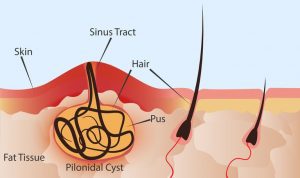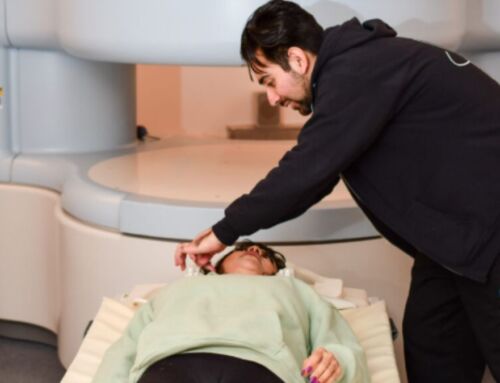“This blog provides a thorough guidance for consumers looking for the correct surgeon to remove a pilonidal cyst. It addresses important factors including experience, surgical methods, and rehabilitation care in determining a proctologist. Readers will understand when to think about surgery, what recovery usually entails, and which questions to ask their surgeon to guarantee best treatment.”
Choosing the right surgeon to remove a pilonidal cyst excision will be among the most important choices you have to make for your health. At Allen Kamrava MD MBA we understand how daunting it can be to negotiate treatment choices particularly in cases of chronic or painful symptoms. But with proper treatment relief is expected rather than merely probable.
Let’s explore the main issues and questions you should ask to ensure professional sympathy.
What Are The Points To Consider Before Seeking Pilonidal Sinus Treatment From A Proctologist?
Before seeing a proctologist about pilonidal sinus therapy give careful thought to important elements such the surgeon’s experience with pilonidal disease their preferred surgical technique and patient recovery results. Search for a board-certified specialist with low recurrence rates and sophisticated treatment choices. Make sure they offer consistent communication, comprehensive after-surgery instructions, and continuous assistance. One should also inquire about their method of wound care and pain control. These components used together provide a safer, more efficient treatment environment.
- Board Certification and Specialization: Verify the surgeon’s certification and colorectal/proctologic expertise. Experience in treating pilonidal disease specifically is critical. Ask How many excision of pilonidal cyst procedures have you performed this year?
- Surgical Technique Used: Some surgeons perform traditional excision methods while others use advanced techniques such as cleft lift or minimally invasive procedures. Ask about the options available and the pros and cons of each.
- Success and Recurrence Rates: It’s okay to ask directly: “What’s your success rate with this procedure?” Look for a doctor who tracks recurrence rates and works proactively to prevent them.
- Postoperative Support and Follow Up: Surgery is only one part of your recovery. Ensure the surgeon offers structured follow-up care, wound management guidance, and availability for urgent concerns.
- Patient-Centered Communication: A great surgeon doesn’t just operate they listen. They should be open to your questions and explain options in plain language. Choose someone who sees your comfort and outcome as a priority.
How Long Does It Take to Recover from Pilonidal Cyst Surgery?
Surgery type and health affect recovery time. However here is a general idea of what to expect:
Healing Timeline
- Initial wound healing: 2 to 4 weeks.
- Return to light activities: 1 to 2 weeks.
- Complete recovery for larger excision pilonidal cyst procedures: Up to 6 weeks.
The recovery process also depends on whether the wound is closed primarily or left open to heal. Closed wounds may heal faster but could have higher recurrence risks in some cases.
- Managing Pain and Mobility: We understand pain management is a common concern. Most patients experience discomfort for the first few days which is manageable with prescribed or over-the-counter pain relievers. We also encourage gentle walking early on to support circulation and healing.
- Wound Care Instructions: To avoid hair buildup following surgery, keep the region dry, clean, and maybe shaved. To help you recuperate more easily, we will clearly lay out daily care instructions and check-in schedules.
- When to Contact Your Surgeon: See for symptoms of infection like redness swelling or discharge do not hesitate to get in touch. Our staff is always ready to make sure your rehabilitation continues on target.
When Should One Contemplate Surgical Measures?
Deciding when to opt for surgery is deeply personal, but here are some key signs that it’s time to consider pilonidal cyst excision surgery:
- Recurring Infections: If you’ve had repeated abscesses or infections despite antibiotics or drainage it may be time for a long-term solution.
- Chronic Pain or Drainage: Persistent drainage, swelling, or pain that doesn’t respond to conservative treatments suggests the cyst tract needs full removal.
- Interference with Daily Life: If your cyst keeps you from sitting comfortably working, exercising or enjoying daily activities surgical intervention may significantly improve your quality of life.
- Your Doctor’s Recommendation: If your doctor believes excision is the best step forward, ask why. Be sure you understand the reasoning, risks, and expected outcomes. We always clearly and sympathetically present our recommendations.
Key Questions to Ask Your Surgeon Before Surgery
To feel confident in your choice, consider asking:
- What surgical techniques do you recommend and why?
- What is your success and recurrence rate?
- What should I expect during the healing process?
- Will I need follow up visits or wound care support?
- How do you manage pain and prevent infection post-surgery?
These questions are not only your right to ask but also crucial for selecting a trustworthy caregiver for you.
Conclusion
Finding someone who really cares about your healing and long-term health is more important than merely credentials when selecting a surgeon for pilonidal cyst excision. At Allen Kamrava MD MBA, we want to provide our patients with knowledge, comfort, and professional treatment right through. Our staff is ready to help you from consultation until complete recuperation. We are here to assist you should you be ready to talk about your choices.




